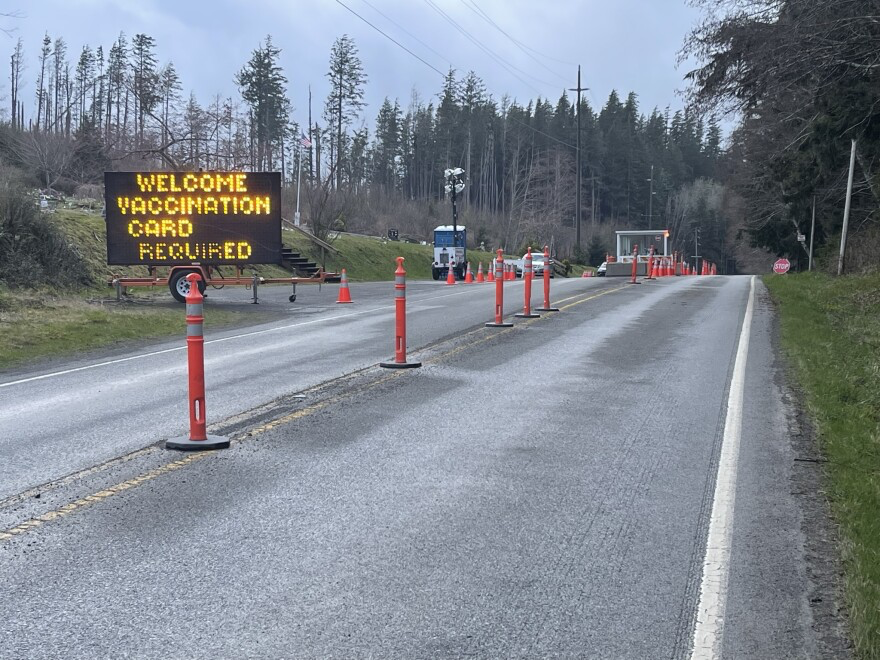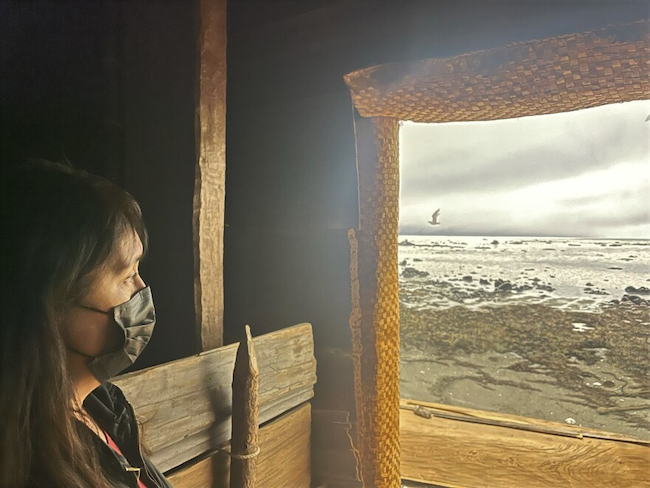

 Indigenous Nations put in checkpoints to block COVID the infected
Indigenous Nations put in checkpoints to block COVID the infected
Indigenous peoples experience “in-hospital COVID-19 mortality rates two to three times higher than other people” in the United States. According to a JAMA public health study, they also suffer among the highest hospitalization and mortality rates in the US, according to a JAMA public health study released on 30 March 2022. The study found that even though American Indian and Alaska Native patients in 2020 had lower complicating medical disorders suffered at the same time as COVID-19, they were more likely than other patients to die in the hospital. The JAMA study revealed that in-hospital death rates among non-indigenous African American and EuroAmerican patients were 75% and 77% lower than native patients.
The Center for World Indigenous Studies studied the spread of COVID-19 to American Indian, Alaskan Native, and other indigenous communities released in May 2020. It concluded that they were more likely to become infected and die than any other population in the country. We found the same to be true in Canada and in Mexico. That Study was shared with the Indian Tribes, Indian health organizations, the UN High Commissioner on Human Rights, and the Pan American Health Organization calling urgent attention to the disaster unfolding.
As the CWIS Global Fourth World COVID-19 Pandemic, Risk Assessment stated:
“Data about individual tribes is not reliable since different methods and practices determine infections, deaths, and asymptomatic identification. The Indian Health Service, the US government health agency authorized to provide health services to Indian tribes, is absent. The 12 epidemiological centers are inadequately funded, most do not have cooperative arrangements with municipalities, counties, state, and federal agencies to obtain more accurate data. There is no follow-on capability to evaluate the residual medical conditions suffered by previously infected. But apparently ‘recovered’ individuals—myocarditis—heart disease or inflamed heart muscle, declined lung capacity, adverse effects on the brain, continue for months after apparent recovery.”
The JAFFA Study, in agreement with the CWIS Fourth World COVID-19 Assessment, other disease factors that CWIS cited, such as heart disease, Type 2 Diabetes, obesity, and arthritis, increased hospitalization and deaths among American Indians. The same factors proved to be accurate, according to the CWIS Assessment, to contribute to hospitalizations and deaths among native peoples.
Further complicating the matters has been the failure of international, country, and local government agencies to effectively track the spread of COVID-19 and the factors contributing to the spread. International, state, and local government health officials entering native communities carried the disease infecting tribal members. Businesses deliver their products or industries conducting forest activities, mineral mining (gold, aluminum, copper, nickel, uranium), fishing, oil extraction, and agribusiness often illegally enter indigenous territories. They carry and spread the disease in often remote native communities. The spread of disease in Mexico, Central America, South America, and remote communities in Africa and Asia all suffered infections and lacked any possibility of vaccinations.

Makah Cultural and Research Center Executive Director Janine Ledford viewing the Ocean dear to the Makah
As many native communities realized that infections of their people were being introduced by government officials and workers from extractive and forestry activities inside their territories, leaders of many communities “closed access to their territories.” Tribal governments in the United States, including the Makah, Lakota, Navajo, and others closed up and established strict “entry rules” allowing only members to enter and return home. Having decided to close access to their territory on 20 May 2020, Makah Chairman TJ Green said, “don’t regret it” As of 1 April 2022, the Makah tribal leaders decided to take down the checkpoint for entry to their territory. Still, they reserve the authority to reinstate the checkpoint if COVID-19 once again threatens to kill their people.
The library is dedicated to the memory of Secwepemc Chief George Manuel (1921-1989), to the nations of the Fourth World and to the elders and generations to come.
access here